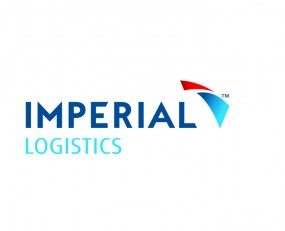
Imperial Logistics has implemented a standardised transportation management system for all its road transport operations in Africa and Europe. Michael Lütjann, chief information officer at Imperial Logistics, stated that the company has opted for the CarLo Transport Management System from Soloplan.
CarLo is replacing a number of different transport management systems (TMS) at Imperial Logistics. The aim is to have standard, comparable, highly automated processes for planning, invoicing, monitoring, electronic documentation and archiving. Imperial Logistics is also planning to involve subcontractors via a web portal and an app – and make use of a reporting function for clients. The new TMS will be integrated in the existing systems in the IT landscape like ERP, DMS or telematics systems via various interfaces with other programmes. They include different processes from operations like fleet management, price quotations (price information), planning the use of personnel and key performance indicators (KPIs).
“The switch in the individual business divisions has already been completed in Johannesburg, Stellenbosch and Durban. The first German and Polish business locations in the General Cargo and Liquid sections of the Road business unit are due to follow during the first and second quarters of this year,” added Lütjann.
Imperial Logistics’ new software solution covers all aspects of transportation management, including planning and controlling, tracking and telematics, quoting, order management, invoicing and accounting, for all modes of transport. Expanding on the system’s benefits for clients, Lütjann explains that they will enjoy more visibility through portals.
Customers will also have better access to information through real-time tracking. Client service will be enhanced by extended reporting and augmented analytics capabilities that encompass orders, shipments, vehicles and drivers.
“The financial benefits that will be delivered include optimal management of cost and revenue, transaction auditability from start to finish and a clear view of profit and loss,” Lütjann explained.
He notes that Imperial Logistics opted for a forward-looking solution in the shape of CarLo because it can handle enormous volumes of data in a short time. As an example of the importance of this capability, Lütjann cites a major client in the automobile industry.
“Imperial Logistics has to handle between 10 and 15 thousand orders within tight time frames on this client’s behalf on a daily basis. In this kind of situation, you need extremely powerful software,” he stresses. “Another benefit of CarLo is the availability of status interfaces, which are essential when working in the automobile sector.”
Doug Vela, CIO of Imperial Logistics South Africa, reports that the group achieved increases in productivity within weeks of implementing the new system in Africa. He notes that subcontractors can be smoothly connected to CarLo through interfaces with many other transport management systems, while drivers connect via an app to the “InTouch” telematics system which is embedded in CarLo, and can then transmit their status reports. There are plans to link up about 900 drivers. CarLo’s advanced web-based communications platform ensures that data is synchronised in real time and is designed to reduce logistics costs and eliminate transmission errors.
Imperial Logistics will complete the roll out of the new system during 2019, and it will be employed at all the group’s business locations around the globe, by some 2 000 users.
Source: Imperial logistics